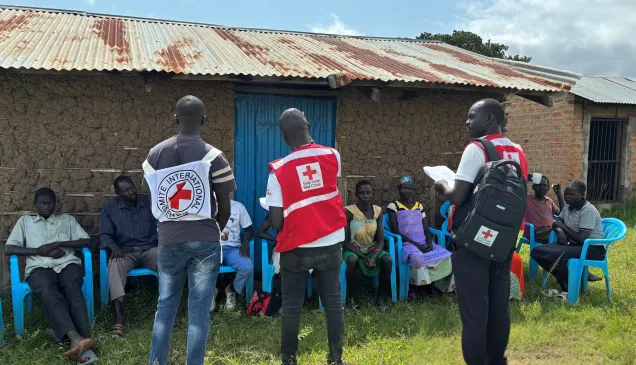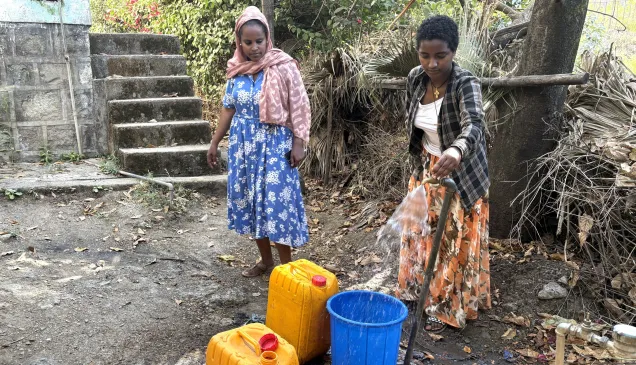Players, coaches, referees, and classifiers from across Ethiopia joined in Addis Ababa for a 10-day training course in wheelchair basketball. The first three days consisted of theoretical courses given by Jess Markt, the ICRC’s Disability Sport & Inclusion Advisor. Classifiers are technical officials specific to wheelchair basketball that assign each player with a ranking from 1.0 - 4.5 that relates to the player’s disability type and consequent muscle function.
A vital assist for Ethiopia’s wheelchair basketball
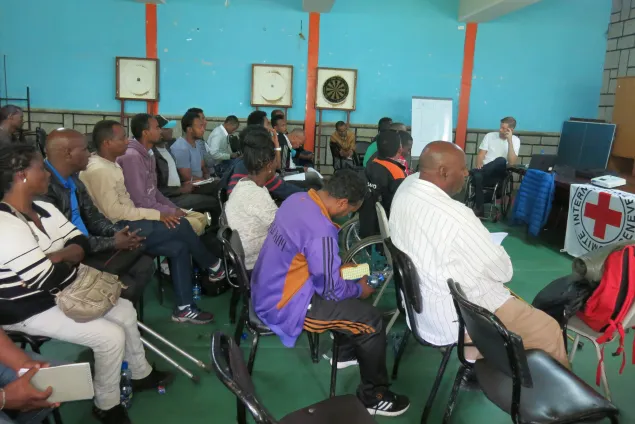
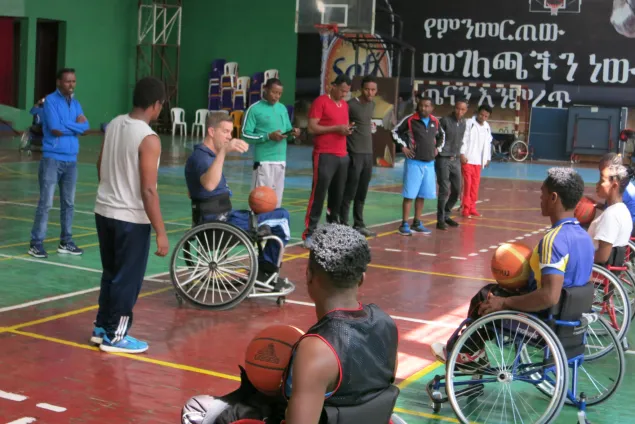
After completing their theoretical training, the coaches (shown here working with Jess to teach players a ball handling exercise), referees and classifiers spent a week applying their new knowledge in practical sessions during a training camp for 35 players from various regions of the country.
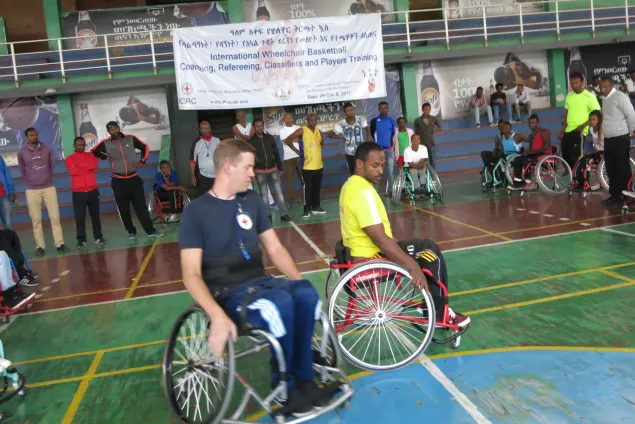
Jess demonstrated exercises to the players and coach trainees, then gave the Ethiopian coaches the chance to help the players hone their skills.
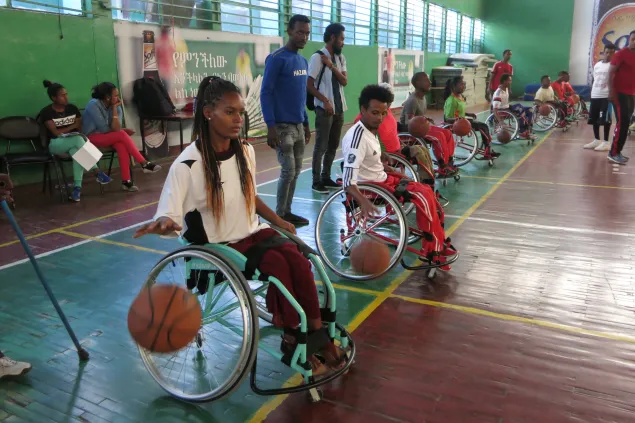
Physically disabled male and female players participated in the training together with mostly able-bodied coaches, referees and classifiers, making the training camp a true example of social inclusion.
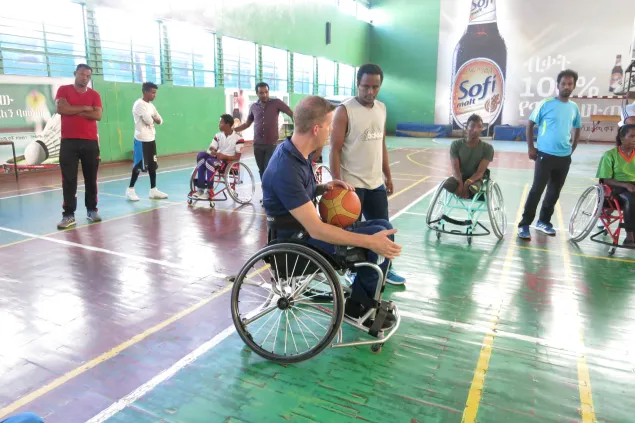
Henok Masresha (in grey t-shirt), a university teacher and coach/classifier/referee trainee, was one of several attendees from Ethiopian universities, looking to get basic knowledge about wheelchair basketball in order to offer it to people in their universities and the regions in which they live. Henok also served as Jess’s primary Amharic translator throughout the sessions to ensure all the lessons were well understood by the participants.
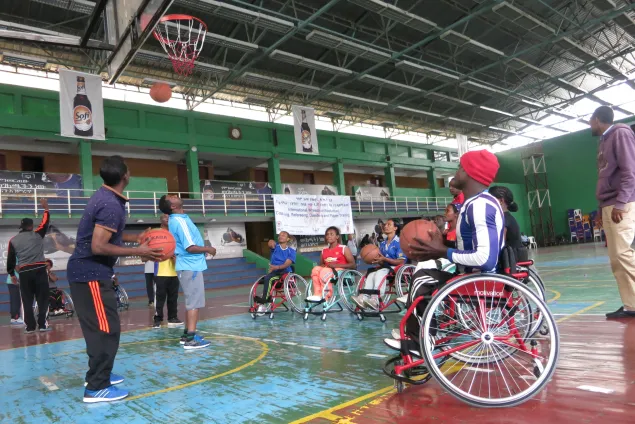
Many of the players have been practicing wheelchair basketball for two-to-three years, but with minimal training on the proper playing techniques used in the game. During the week-long training camp, they learned to shoot the basketball properly, and coach trainees were assigned to ensure the players would only practice with proper technique moving forward.
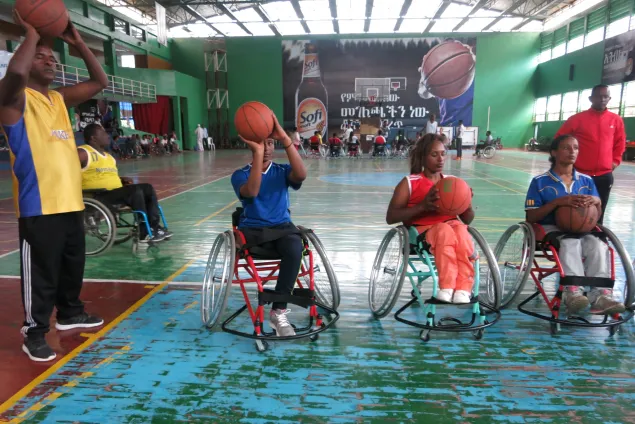
The female training participants, including (left to right) Frey, Lucy, and Godada, showed remarkable improvement during the week, putting pressure on their more-experienced male counterparts to train hard in order to keep up.
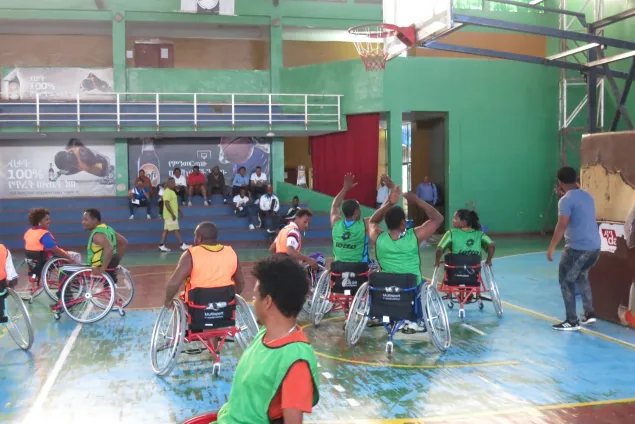
At the end of the training camp, the players were divided into equal teams and given the chance to play a series of games with official referees and coaches while using – for the first time – the international wheelchair basketball player classification system, which emphasizes using a broad range of disability types and severities in on-court lineups. They performed admirably before an enthusiastic crowd of supporters, drawing cheers for each successful play and showing the observers what amazing things people with physical disabilities can achieve when given the opportunity.
Players, coaches, and classifiers drawn from six regions of Ethiopia participated in a 10-day wheelchair basketball training.
The training was organized by the ICRC in partnership with the Ethiopian Basketball Federation, and was aimed at strengthening the sport in the country. Wheelchair basketball plays a particularly important role for people living with disabilities because it promotes social inclusion.

